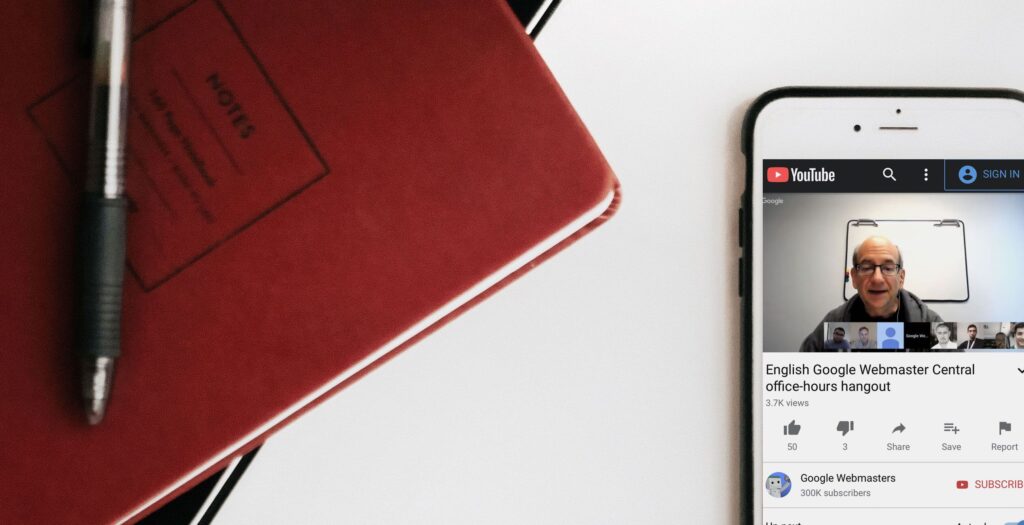Tuesday’s Google Webmaster Hangout with John Mueller covered international sites, Index Status counts, 302 redirects and PageRank, among other interesting discussions. Here are our notes, complete with times for when each subject was mentioned.
We’ve included a quote of the question where we think it might be helpful for understanding the context of the answer.
8:40: Changes in target country for a site
When you update target country in Search Console, it can sometimes take a month or so for the result to be updated in search results, particularly if you’re working with a well-established site.
9:50: Positive changes after a penalty
Some positive changes can happen very quickly, sometimes it can take a while. Site-wide changes need to be reindexed and reprocessed and can take a couple of months, whereas smaller changes like a page title can be visible within a day.
16:32: Links on paginated pages
In response to a question about whether it is ok to canonicalize back to page one of a paginated set, John expanded more on whether Google counts links within pagination:
“[For example,] if you have an ecommerce site where you have one page that lists all of your items and from there it links to all your individual product pages, then if we don’t have any other form of navigation to those product pages, and we’re only focusing on the first page of that paginated set, then we might miss links to those individual product pages.
“On the other hand, if you have a normal navigation on the website and you have this long paginated set and you’re only indexing the first page then we’ll still find those individual product pages anyway through the normal navigation. So it kind of depends on your website what you want to achieve.”
20:35: ‘Click to expand’ versions between mobile/desktop
The UI for mobile and desktop versions of the same content doesn’t have to be exactly the same on both versions – as long as the pages are equivalent. If there is something that makes sense for the user (the example mentioned in the Hangout was a ‘click to expand’ box that would show in mobile but not on desktop) then it’s fine to use that on one and not the other.
22:55: jquery and size of content
Including jquery content that is much larger than the content (the example mentioned was a minimized version of ~96kb: 4-10 times the size of the HTML for the pages) won’t dilute the relevance and quality of content in terms of SEO, but it might have an effect on users if it impacts on site performance.
John explained that PageSpeed only really becomes a problem when the site is really slow. If you’re in what he called the ‘normal range’ where your pages load within 20-30 seconds then increasing speed by tiny amounts won’t have any effect at all on rankings, although it might have an effect on your users.
John also made the point that, if you use jquery from a standard CDN that lots of sites use, then users might already have that in their cache so they won’t have to download it again and the page will be faster for them, even with large files.
29:20: 302 redirects being treated as 301s if left in place long enough
There’s no specific time for this to happen – Google is just trying to recognize that this is not a temporary situation and treat it as a permanent one.
John recommended reading Matt Cutts’ blog on 301/302 and how they could be handled (he estimated this was written in 2008/09).
31:22: X-default in hreflang
“My Question is about X-default in hreflang. I have my languages on multiple domains for example .co.uk=en, .it=it, .com=de. Can i use the x-default to my .co.uk even though I already have it for my en?”
Yes – x-default can point to an existing page.
John also noted that, if there are no hreflang tags showing mark-up that matches the user’s browser settings, Google will choose the best version and show that.
35:17: Multilingual content
Versions of the same content in different languages should always be on separate pages: Google should always be able to use separate URLs to get separate versions of the same content.
Dynamically-swapping the same content in different languages on the same page will mean that one version is indexed and Google will never find the other version(s).
Translation plugins will be viewed as auto-generated content if they are used on their own – using plugins in addition to multi-page content is fine.
40:12: Do mobile pages need to be in the Sitemap when canonicalized?
“We have separate desktop and mobile websites. We do not use a subdomain, and mobile pages are in the same directory. Using rel canonical on mobile pages, is it necessary to put our mobile pages in our sitemap?”
No – as long as Google can see the connection between the desktop and mobile pages, with the rel alternate and the rel canonical back, that’s fine.
40:40: Is it ok to have Adsense above the fold?
Yes, in terms of SEO it is. It might not be the best option for the user though.
42:57: Has the latest Panda fully rolled out?
Don’t know.
43:16: How to check index count
Don’t use a site: query to check index count – use Sitemaps/Index Stats in Search Console instead, although session IDs and URL parameters can still affect this.
46:42: Ranking above local pack results for brand terms
John explained he doesn’t know how local results are compiled but, as far as he knew, it is possible to rank better than local results.
49:07: Are Knowledge Graphs, answer boxes and new Google features part of search?
Google is trying to figure out which content to show the user based on their query – sometimes this includes Knowledge Graph information and answer boxes. Over time Google might find a balance, but they try to directly link user to content where it is relevant.
53:48: If 302s are treated like 301s eventually, will they pass PageRank?
302 redirects will pass PageRank anyway, so yes.



